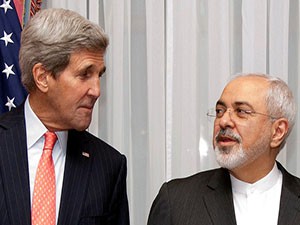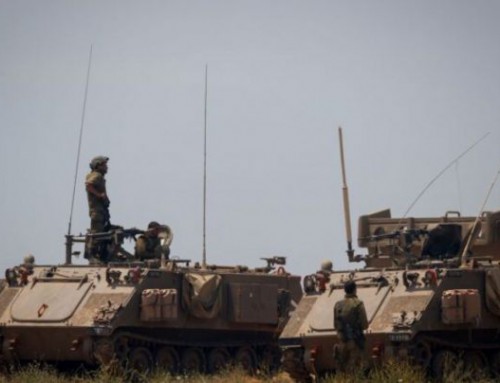 The March 31st negotiating deadline with Iran over limiting its nuclear programs is upon us. Even if a further extension follows which is likely, suppose at some future point, these negotiations ultimately fail. What options are left?
The March 31st negotiating deadline with Iran over limiting its nuclear programs is upon us. Even if a further extension follows which is likely, suppose at some future point, these negotiations ultimately fail. What options are left?
Eerily, chilling parallels with 1914 and 1964 arise. A century ago, the world “sleep walked to war.” The assassinations of Archduke Franz Ferdinand and his pregnant wife Sophie lit the fuse for World War I and sowed the seeds for future conflicts. In August 1964, President Lyndon Johnson used the pretext of a non-existent second set of attacks by North Vietnamese PT boats against two U.S. Navy destroyers to rally a nearly unanimous and compliant Congress into passing the Tonkin Gulf Resolution authorizing the disastrous Vietnam War.
2015 is not 1914 or 1964. But the surfeit of crises from the Bay of Bengal to the Maghreb has the sound of ticking time bombs not dissimilar to those that exploded in August 1914. Fortunately, unlike 1914 or 1964, an international body in the form of the UN is actively engaged in preventing a full-blown crisis over Iran’s nuclear intentions. Negotiations with Iran were through the permanent members of the Security Council plus Germany — and joined by the European Union. If negotiations fail, the logical first step will be a UN response.
Greater economic sanctions would almost certainly be imposed. The Security Council could also authorize the use of force to prevent Iran from obtaining nuclear weapons. Given the experience of the second Iraq War however, it is doubtful that force would be authorized or that Russia and China would acquiesce in its use.
Short of using force, stronger economic sanctions would be used to induce Iran’s return to the negotiating table. However, unlike 1964 at some future date, possibly late this Fall, very tough decisions will have to be made about next steps and the use of force. And unlike 1964, Congress could be forcing President Barack Obama’s hand; not vice versa
In the case that negotiations do not produce an acceptable agreement, what realistic options will President Obama have beyond using military force? The president explicitly ruled out a containment policy and has been heavily criticized for not sending arms to Ukraine. Hence, doing nothing, even if that were the most sensible choice, might be politically unsustainable.
The Gulf States led by Saudi Arabia would demand action viewing anything short of a pre-emptive military strike against Iran’s nuclear infrastructure another sign of U.S. weakness. With Benyamin Netanyahu’s return to office, the prime minister will use the bully pulpit to demand that Iran’s existential threat to Israel requires a military solution.
The Obama administration certainly knows that military strikes at best would set back and not destroy Iran’s nuclear capacity. The president surely has asked the “what next?” question and understands many of the potentially negative and possibly catastrophic consequences of military action. Unfortunately, that question and the consequences of military action are likely to be discounted if there is no agreement and, as a result, political and public support for eliminating Iran’s nuclear weapons potential surges.
While not all Iranian responses are predictable, a range of retaliatory options surely is. If attacked, would Iran, as North Korea did, conclude nuclear weapons were vital to national security and embark on developing them despite religious strictures to the contrary? Washington will assume that answer will be a yes.
In the region and beyond, a real war could erupt. Iran would use organizations such as Shia militias in Iraq and Hezbollah in Lebanon to exact retribution. Attacks against Israel are inevitable. Bahrain with its large Shia populations would make a tempting target. Saudi Arabia too would be vulnerable. Iraq, where Iran already has a strong influence and presence, could become a closer ally. And threatening to mine or obstruct the Strait of Hormuz interrupting the flow of oil has been a military contingency planners have considered for decades.
Iran could also retaliate against U.S. and western forces in the Gulf and Iraq with military, cyber and terrorist attacks. One consequence of military action and retaliation almost certainly would send the price of oil soaring, something that would greatly benefit Iran and Russia. A spike in oil prices could have a crippling impact on global economies.
One hopes Iran’s Supreme Leader is weighing these risks carefully. Should negotiations fail, unlike Lyndon Johnson’s hand in starting a war in Southeast Asia, this time Congress, along with international and domestic pressures, could force President Obama into using military power to forestall Iran’s nuclear capacity. Whether disarming strikes will trigger events as in 1914 or produce a needless war as in 1964 remains to be seen. But neither prospect should be dismissed.






Leave A Comment